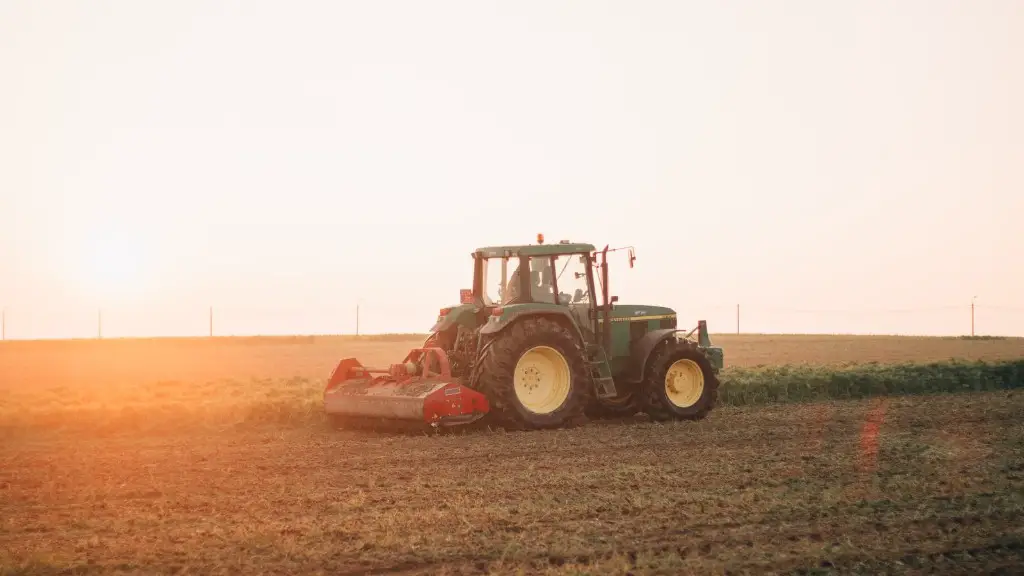Lime is a type of soil amendment that can be used to improve the growing conditions of agricultural applications. It is composed of calcium and magnesium, and when applied to soil, it can help to reduce problems such as compaction, nutrient deficiencies, and pH levels that are too low or too high.
Lime is used in agriculture to neutralize soil acidity.
What are the benefits of adding lime to soil?
Lime is a soil conditioner and helps to control the soil acidity. It does this by neutralising the effects of acids from nitrogen (N) fertiliser, slurry and high rainfall. Other benefits of using lime include an increase in earthworm activity, improvement in soil structure and grass that is more palatable to livestock.
Agricultural lime is a popular soil amendment because it has a range of benefits for plants and soils. Agricultural lime is created by crushing limestone, and it is used to improve growing conditions in acidic soils. The main benefit of agricultural lime is that it increases the pH of acidic soils, which reduces the acidity and increases the alkalinity. This change in pH can improve water penetration in acidic soils and improve the absorption of prime nutrients (nitrogen, phosphorus, and potassium) in plants. In addition, agricultural lime can help to break up compacted soils and improve drainage.
What do farmers use lime for
Agricultural lime is a popular way to lower soil acidity levels and make them more pH neutral. By applying lime to the soil when it becomes too acidic, farmers can ensure they are helping improve their crop output. If crops can’t properly grow, they can’t produce, which impacts the agriculture business and its bottom line.
High-calcium lime is produced from limestone that is naturally high in calcium carbonate. Dolomitic lime is produced from limestone that contains a mixture of calcium and magnesium carbonates.
Which plants do not like lime?
Ericaceous plants are plants that don’t like growing in soils that contain lime. They are also known as ‘acid lovers’ or ‘lime haters’. This means they won’t grow well in soils that have a high pH – such soils are referred to as alkaline.
If any of the above signs are present in your yard, it’s likely that you need to apply lime. Lime is a soil amendment that can help improve the quality of your soil, making it more conducive to growing grass and other plants. If you live in an area with a lot of rainfall, lime can also help to offset the effects of acid rain.
Why do farmers mix lime with soil?
Different crops deplete different nutrients from the soil. Decaying plant matter raises the acidic levels. Lime helps to reduce the acid content, changing pH levels for optimum plant growth.
Lime should be applied to our soils every 3-4 years in order to maintain maximum flexibility and to take advantage of ideal conditions. This also fits in with our usual soil testing schedule.
What is the difference between lime and agricultural lime
Agricultural lime, or “aglime,” is a soil amendment made from crushed limestone. Limestone (calcium carbonate) is not the same as hydrated lime (calcium hydroxide).
Slaked lime is commonly used to neutralize the acidity of soil. The acidity might be caused by chemicals and fertilizers, or it might be due to acid rain. The rain helps to dissolve the slaked lime into the soil, making it more neutral.
Is lime better than fertilizer?
Lime is commonly used to improve the acidity of soil, making it more hospitable for plants. Though it contains calcium and magnesium, two nutrients essential for plant growth, lime should not be used as a substitution for fertilizer.
Lime is a basic soil amendment that can be used to raise the pH of acidic soils. When the soil becomes too acidic, it becomes a toxic environment for crops. Applying lime to the soil can help to increase the pH and reduce the acidity.
How long does lime last in soil
Lime will react completely with the soil in two to three years after it has been applied; although, benefits from lime may occur within the first few months after application.
Magnesium oxide and hydroxide are proposed as an alternative to lime in soil stabilization in order to overcome some of its inherent disadvantages, such as carbonation, sulfate attack, and environmental impact.
Do farmers put lime on their fields?
Lime is a soil amendment that can be used to improve yields for farmers, the appearance of lawns for homeowners, and to stabilize spoil for landscapers. It is important to keep in mind that too much lime can be just as harmful as not enough, so it is important to follow application instructions carefully.
According to several noted producers and writers at the Fifth Annual Virginia Sustainable Agriculture conference, hydrated lime applied to the foliage of vegetable crops repelled a wide variety of insects, including aphids, flea beetles, Colorado potato beetles, squash bugs, and cucumber beetles.
Warp Up
Lime is an important agricultural amendment because it helps to regulate soil pH. Most soils are naturally acidic, and lime helps to neutralize these soils. This is important because plants grow best in slightly acidic soils with a pH between 6.0 and 7.0. When soil pH is too low, it can cause problems with nutrient availability and plant growth. Additionally, lime can help to break up compacted soils and improve drainage.
In conclusion, the use of lime in agriculture is twofold. First, it can be used as a soil amendment to improve pH levels and make nutrients more available to plants. Second, it can be used as a pesticide to deter pests and diseases.




